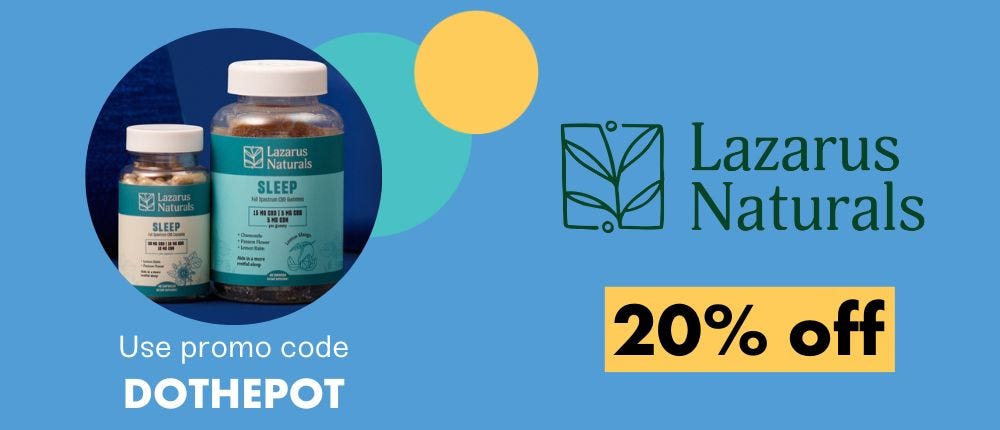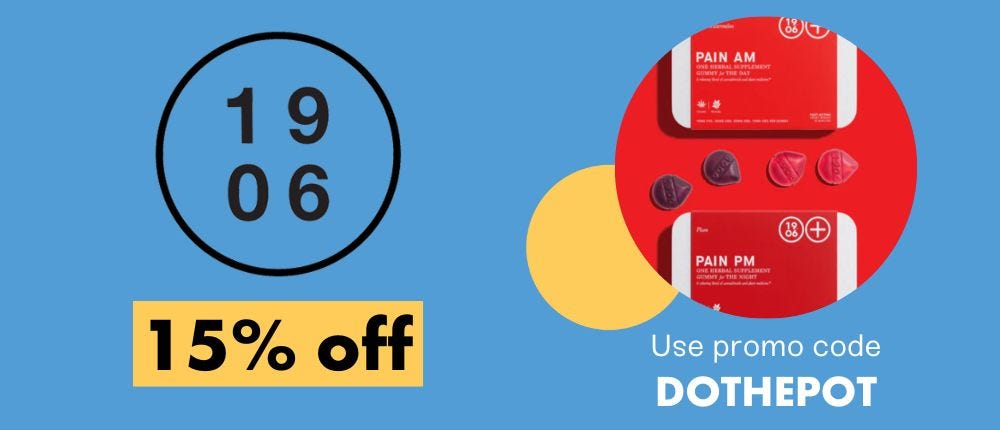The Most Important System in Your Body You’ve Never Heard Of
A doctor breaks down how the endocannabinoid system regulates sleep, pain, and hormones—and why it’s essential for women’s health.
“If the nervous system is the body’s electrical wiring and the cardiovascular system is the plumbing, then the endocannabinoid system is the thermostat—constantly adjusting to keep everything in balance. And yet, despite its critical role, most people have never even heard of it.”
Dr. Ben Caplan, Doctor-Approved Cannabis
If you’re struggling with sleep, stress, or hormonal shifts, there’s a little-known system in your body working behind the scenes to keep everything in balance—the endocannabinoid system (ECS).
Even though it plays a key role in regulating mood, pain, inflammation, and hormones, most people, including doctors, know very little about it. That’s because the ECS was discovered through cannabis research, and for years, anything tied to cannabis was left out of mainstream medicine.
I talk a lot about cannabis for health and well-being—and the real story starts with your endocannabinoid system. I feel strongly that every woman can benefit from understanding this "back to basics" piece of her health. We’re so often left to figure things out on our own, and knowing how your body actually works is a first step toward feeling better.

In this exclusive Q&A, Dr. Caplan breaks down everything you need to know about the endocannabinoid system, and why it matters for women’s health.
Dr. Ben Caplan, MD, is a board-certified Family Medicine physician and a globally recognized leader in cannabis medicine, blending over two decades of clinical practice with pioneering research. Named among the top 100 most influential figures in cannabis, Dr. Caplan has also led groundbreaking research featured in The New England Journal of Medicine and has shaped national policy discussions on cannabis-based healthcare.
What is the endocannabinoid system, what does it do, and why don’t more people know about it?
The endocannabinoid system (ECS) is one of the body’s best-kept secrets—a master regulator working behind the scenes to keep everything from mood to pain, sleep to immunity, running smoothly. If the nervous system is the body’s electrical wiring and the cardiovascular system is the plumbing, then the ECS is the thermostat, constantly adjusting to keep things in balance. It does this through a network of receptors (CB1 and CB2), endocannabinoids (the body’s own cannabis-like molecules), and enzymes that ensure everything stays in check. And yet, despite its critical role, most people have never heard of it.
Why? Chalk it up to bad PR. The ECS was discovered in the 1990s when researchers were studying how THC interacts with the body. But by then, cannabis had already been vilified, and anything associated with it—especially a system that sounded suspiciously like it was built for cannabis—was largely ignored by mainstream medicine. Medical schools barely touch on it, routine lab tests don’t measure it, and most doctors never formally learn about it, leaving millions of people in the dark about a system that could help explain chronic pain, anxiety, inflammation, and countless other modern health struggles. But as research catches up and cannabis becomes less of a political lightning rod, the ECS is finally getting the recognition it deserves.
How does the endocannabinoid system specifically influence women’s health?
If you’re a woman, the ECS is woven into nearly every aspect of your physiology, whether you realize it or not. It’s deeply entwined with estrogen, which helps regulate endocannabinoid levels, meaning hormonal fluctuations can send the ECS on a bit of a rollercoaster ride. This explains why mood, pain sensitivity, appetite, and even cognition can shift throughout the menstrual cycle. It’s also why cannabis might feel like a godsend one week and too intense the next—your ECS is responding to those hormonal waves in real time.
Beyond cycles and hormones, the ECS is implicated in conditions that disproportionately affect women, like endometriosis, polycystic ovary syndrome (PCOS), fibromyalgia, and autoimmune diseases. These conditions all involve inflammation, pain dysregulation, and immune dysfunction—areas where the ECS plays a crucial role. And then there’s menopause, where declining estrogen levels mean fewer endocannabinoids and a body struggling to maintain equilibrium. Estrogen doesn’t just play nice with the ECS—it actively regulates it. So when estrogen levels start to drop, the ECS isn’t just influenced by that change, it’s directly impacted, often leaving the body scrambling to compensate. That’s why hot flashes, sleep disturbances, and mood shifts hit so hard—the ECS is working with a dwindling set of resources. The good news? Understanding the ECS gives women another tool to navigate these changes, whether through cannabinoids, lifestyle adjustments, or both.
How does cannabis interact with the ECS, and what makes cannabinoids like THC and CBD different from other natural remedies women might already be using?
Unlike most natural remedies that work around symptoms, cannabis works within the body’s own regulatory system. Cannabinoids like THC and CBD interact directly with ECS receptors, making them uniquely capable of influencing pain, mood, sleep, inflammation, and even temperature regulation. THC binds directly to CB1 receptors in the brain and nervous system, producing its well-known psychoactive effects while also helping to modulate pain and emotional processing. CBD, on the other hand, doesn’t latch on so aggressively—it acts more like an ECS coach, encouraging the body to maintain its own endocannabinoid levels while also engaging with serotonin and dopamine systems.
What makes cannabis stand out is that it’s not just symptom management—it’s recalibration. Unlike supplements that nudge the body toward balance indirectly, cannabinoids plug directly into the network responsible for homeostasis. And, let’s be honest, it also brings something most remedies don’t: joy. The ECS isn’t just about fixing problems; it’s about enhancing pleasure, relaxation, and sensory experience. And as research expands, we’re learning that THC and CBD aren’t the only players in the game. Other cannabinoids—like CBG (thought to help with inflammation and gut health) and THCA (a non-psychoactive precursor to THC with potential pain-relieving properties)—are emerging as potential tools in supporting the ECS and women’s health.
What happens if the ECS isn’t working properly? Are there any health conditions women are more likely to experience if their ECS is out of balance?
A struggling ECS doesn’t just fail to regulate pain—it can actually make the body more sensitive to it. Scientists have coined the term clinical endocannabinoid deficiency to describe what happens when the body isn’t producing enough endocannabinoids or the ECS receptors aren’t responding the way they should. This has been linked to conditions that tend to resist conventional treatment—things like migraines, fibromyalgia, irritable bowel syndrome (IBS), and even some forms of chronic pain. These disorders share a frustrating pattern: heightened pain sensitivity, widespread inflammation, and a nervous system seemingly stuck in overdrive—all areas the ECS is designed to keep in check.
Beyond chronic pain, an imbalanced ECS may also contribute to anxiety, depression, sleep disturbances, and autoimmune conditions, all of which disproportionately affect women. Given that estrogen plays a role in maintaining endocannabinoid levels, its fluctuations throughout life—pregnancy, perimenopause, menopause—can exacerbate ECS dysfunction.
Can lifestyle choices like diet, exercise, or stress management boost the ECS?
Absolutely. The ECS isn’t just something you have—it’s something you can support. A well-functioning ECS depends on a steady supply of the right building blocks, and diet is a major factor. Omega-3 fatty acids, found in fish, flaxseeds, and walnuts, help produce endocannabinoids, while dark chocolate (the high-cacao kind) contains compounds that slow their breakdown, helping those feel-good molecules stick around longer.
Exercise is another natural ECS booster. That famous “runner’s high” isn’t just endorphins—it’s anandamide, one of the body’s own cannabis-like compounds. Any movement, from yoga to weightlifting to a brisk walk, can help stimulate ECS activity, improving mood, reducing inflammation, and even aiding sleep. And then there’s stress—arguably one of the biggest ECS disruptors. Chronic stress depletes endocannabinoid levels, making it harder for the system to maintain balance. Practices like meditation, deep breathing, and even laughter (yes, laughter has ECS benefits) can help restore that equilibrium.
The beauty of the ECS is that it’s not a fixed system—it’s responsive, adaptable, and always working to maintain balance. The more we understand how to support it, the better it works for us, whether through cannabis, food, movement, or stress management. It’s not just about treating symptoms; it’s about giving the body the tools it needs to regulate itself naturally.
What is the future of research into the ECS?
While the ECS is still far from being a household name, the tide is shifting. Researchers are exploring how targeted cannabinoid therapies might address specific conditions, and clinical trials are expanding to uncover more about its role in mental health, chronic pain, and even metabolism. The question isn’t whether the ECS will become mainstream—it’s when. And when that happens, it’s going to change the way we think about medicine, health, and balance itself.
How can readers learn more?
If this conversation has you rethinking what you thought you knew about cannabis and the ECS, you’re not alone—and you’re definitely not going to want to stop here. My book, The Doctor-Approved Cannabis Handbook, dives even deeper, cutting through the noise to give you clear, science-backed answers on how cannabis actually works in the body. And if you like staying ahead of the curve (or just want the kind of cannabis insights you won’t find in mainstream headlines), my newsletter, Doctor-Approved Cannabis, is where I break down the latest research, challenge misconceptions, and answer the questions people really want answered. Don’t miss out—because when it comes to cannabis, knowing more means feeling better.

Do you have more questions for Dr. Caplan? Please DM me or share in the comments below.
Thank you for reading!
Warmly,
Ellen



